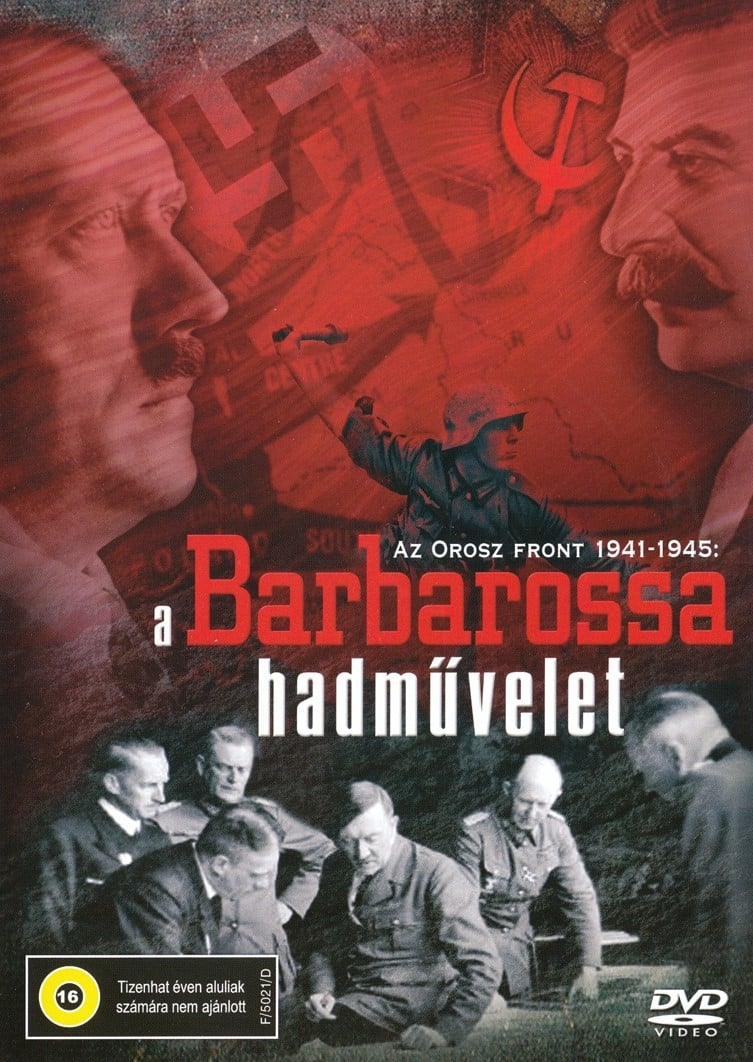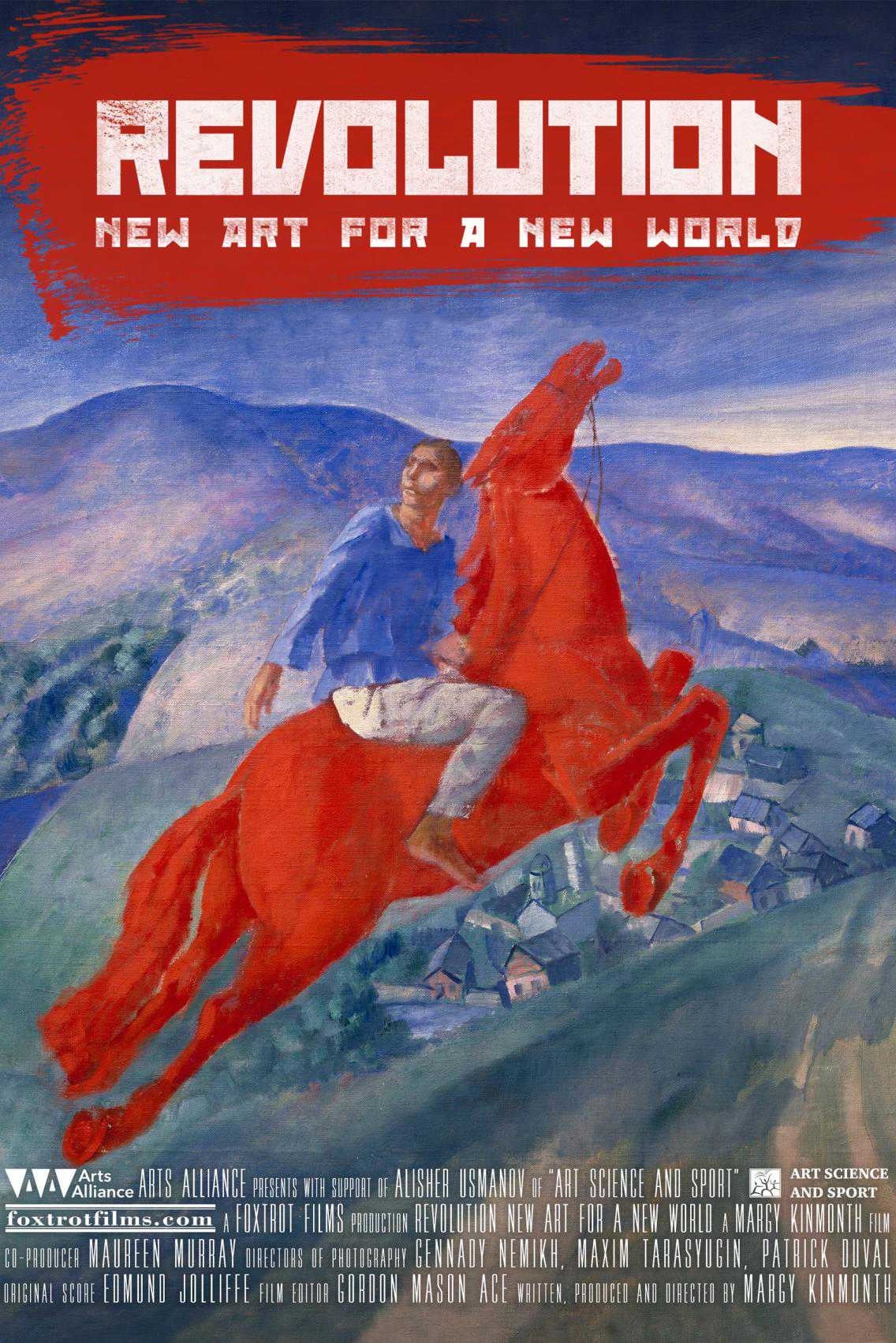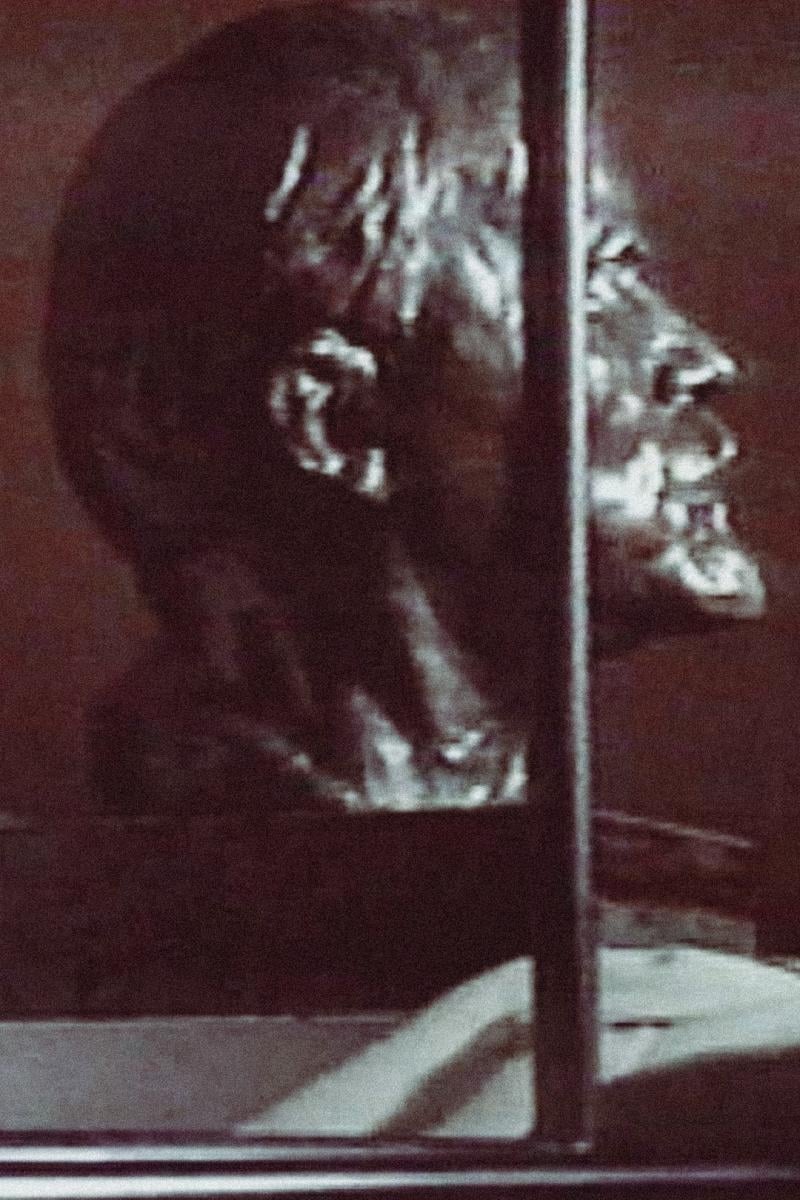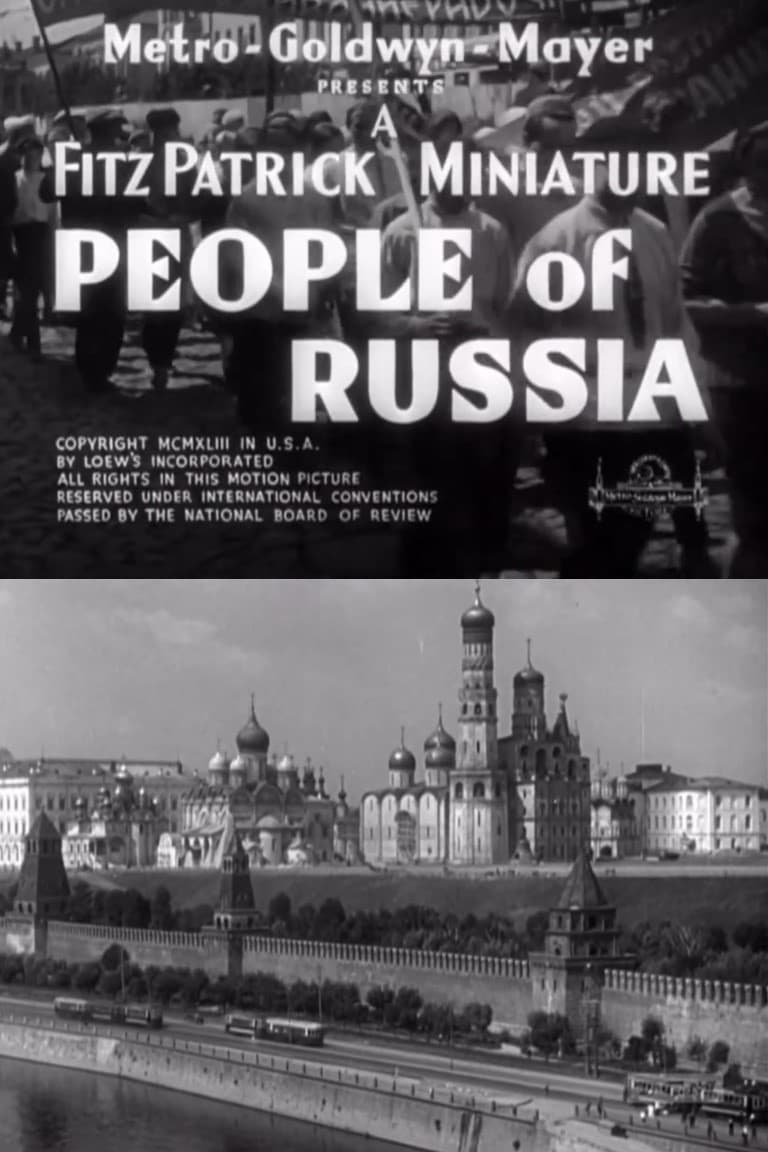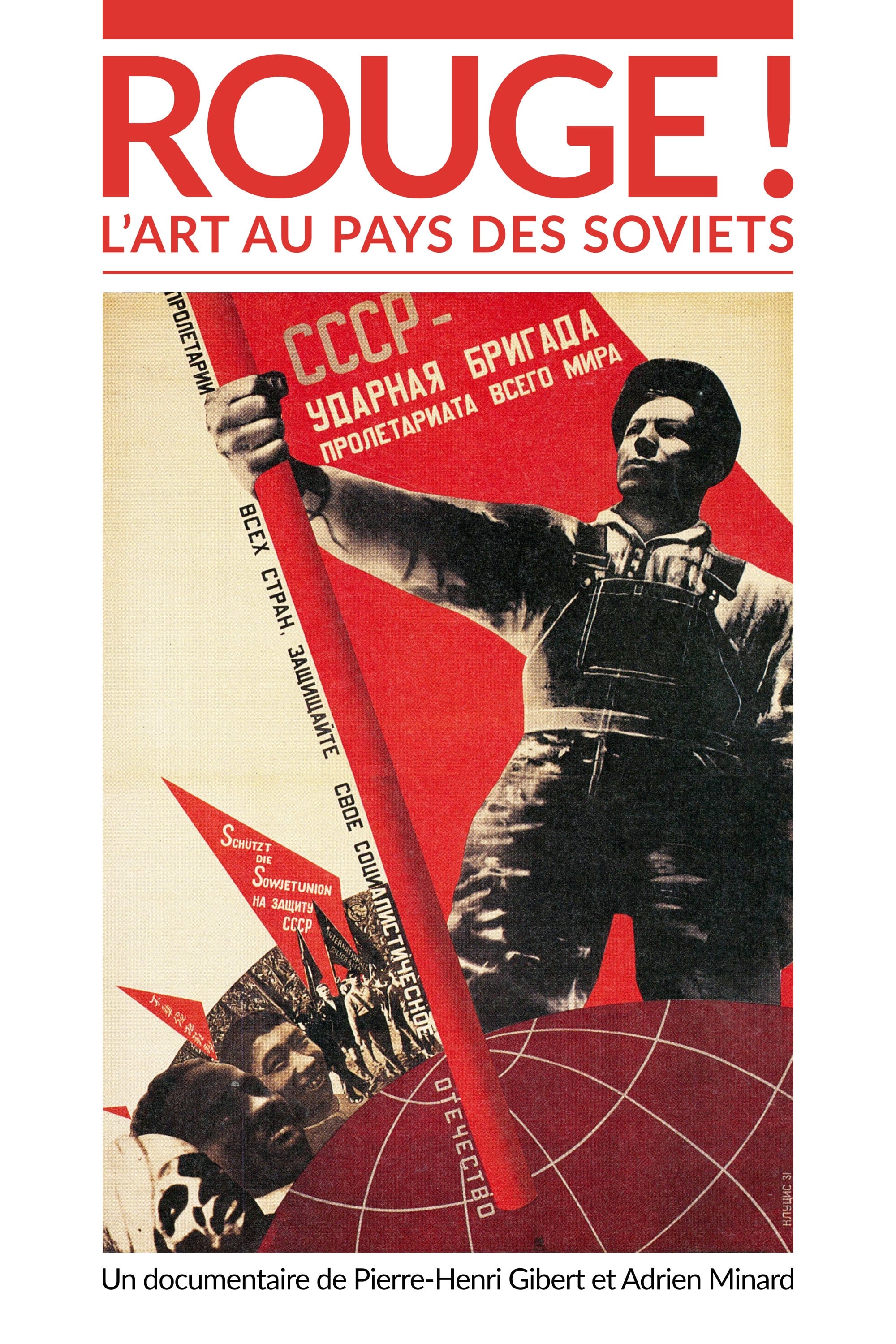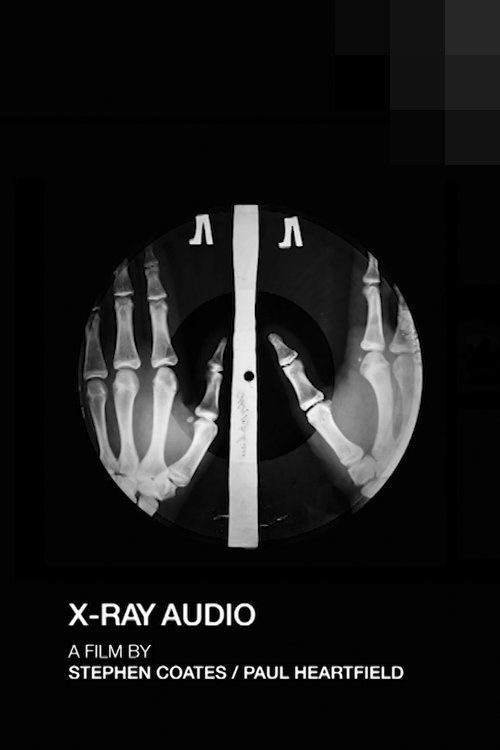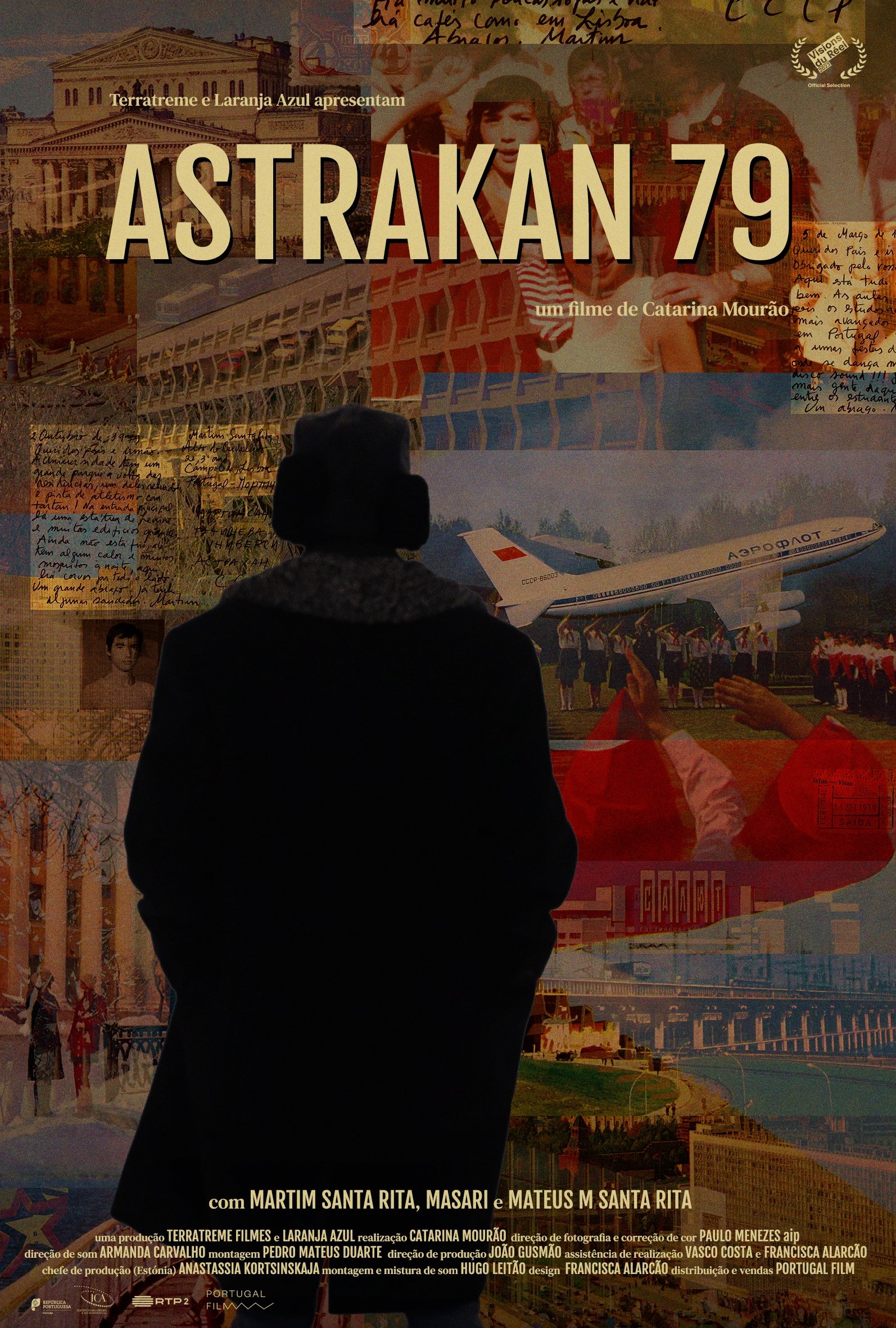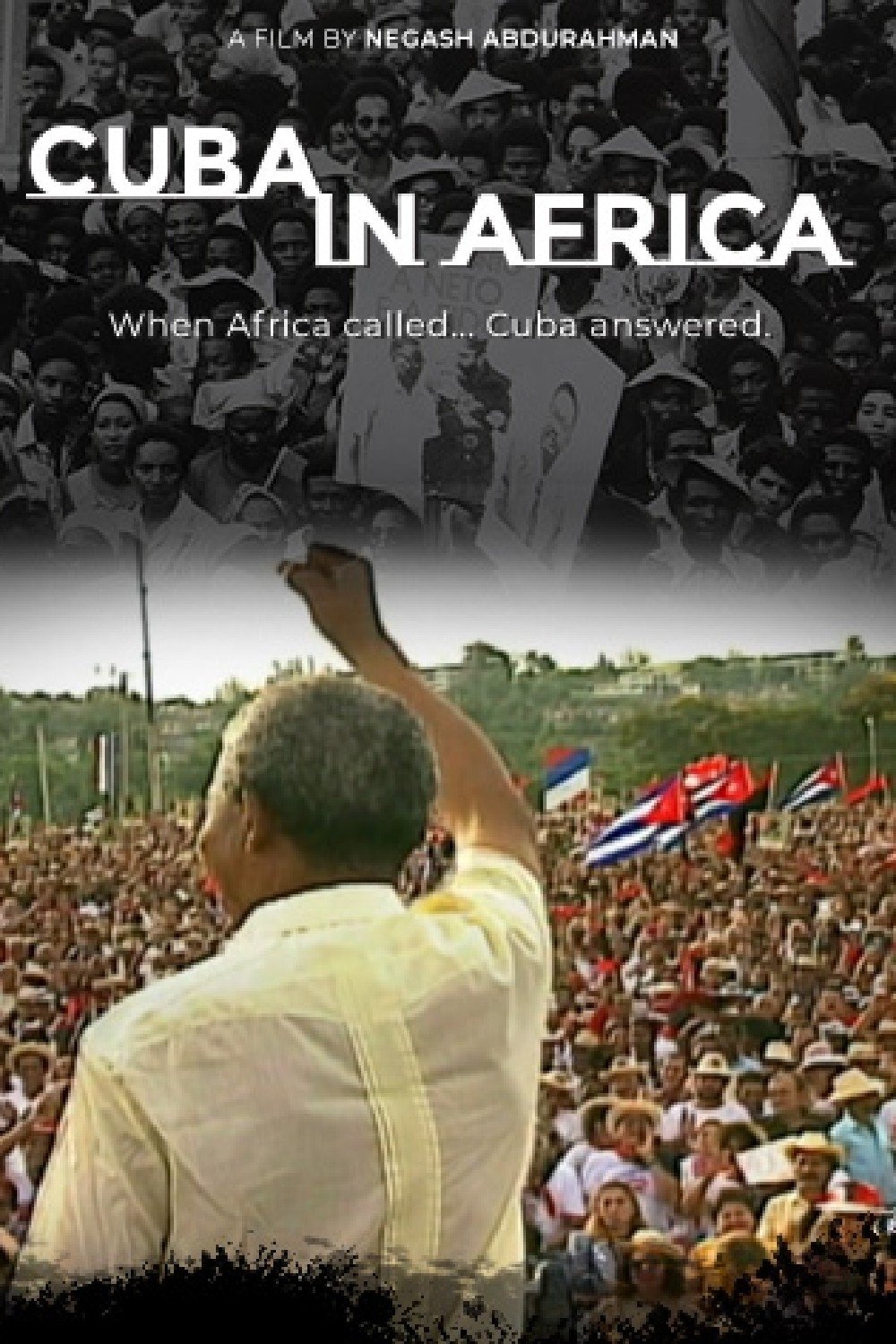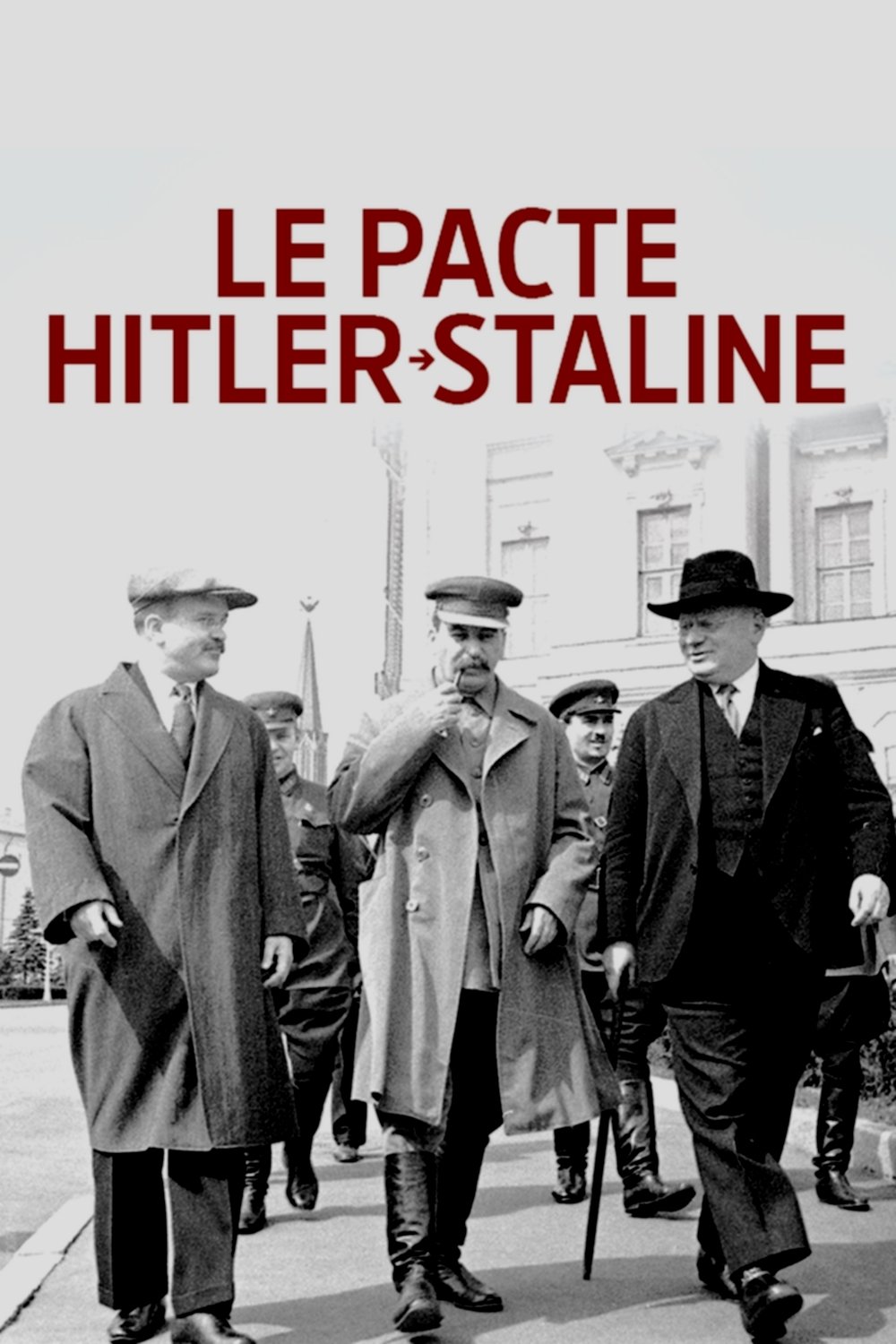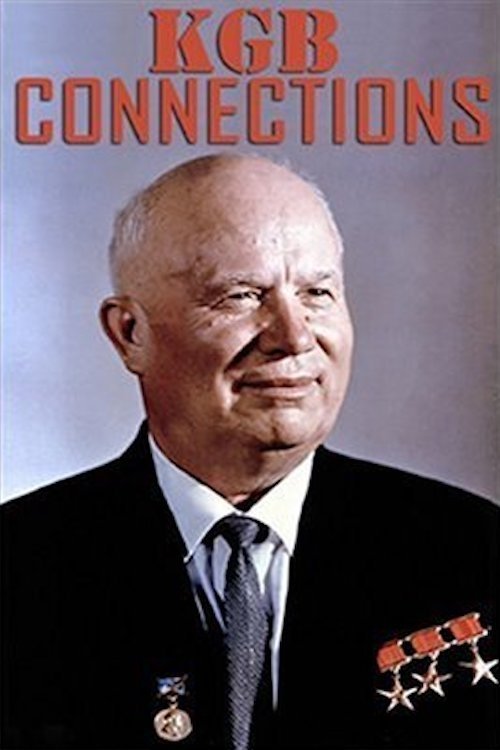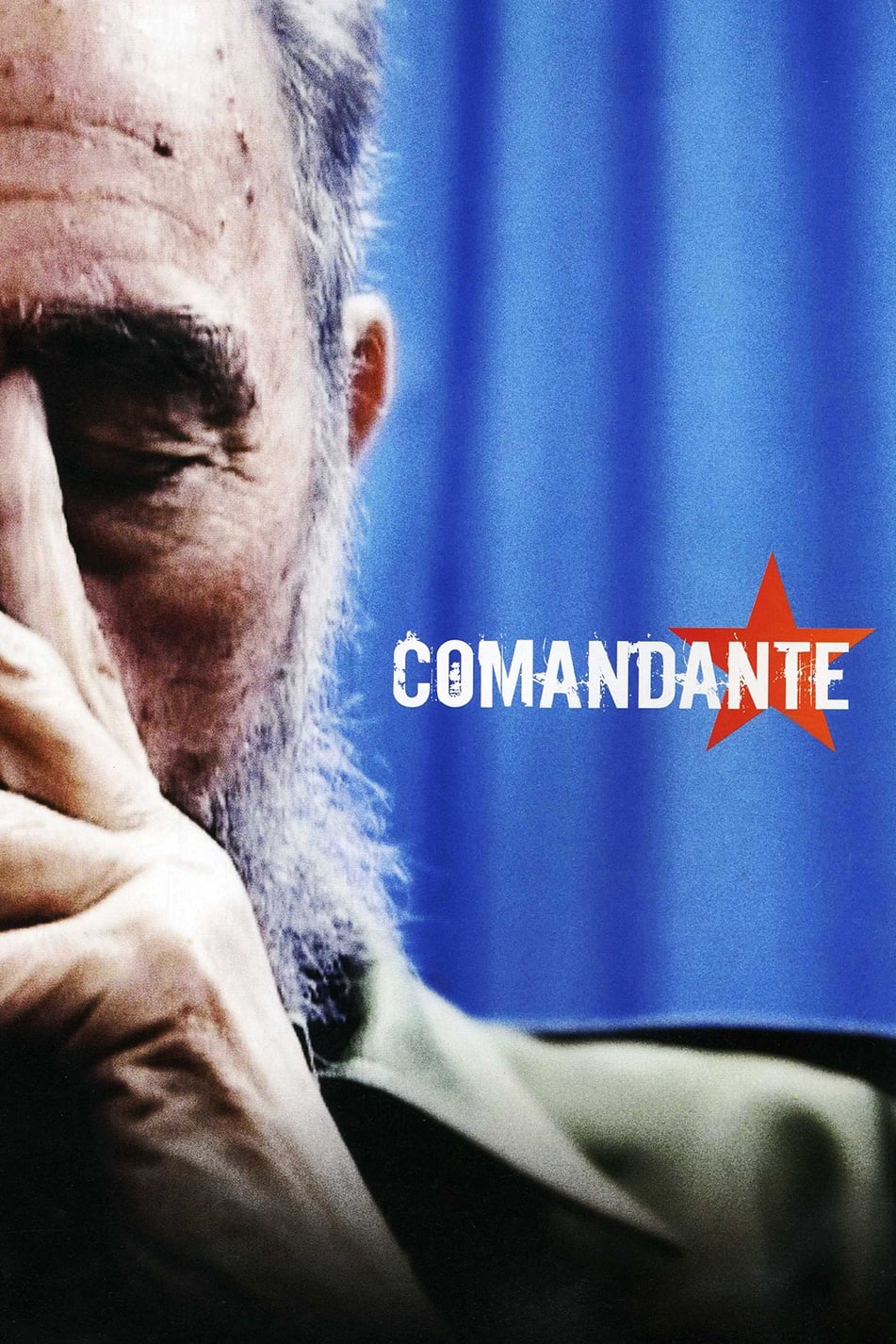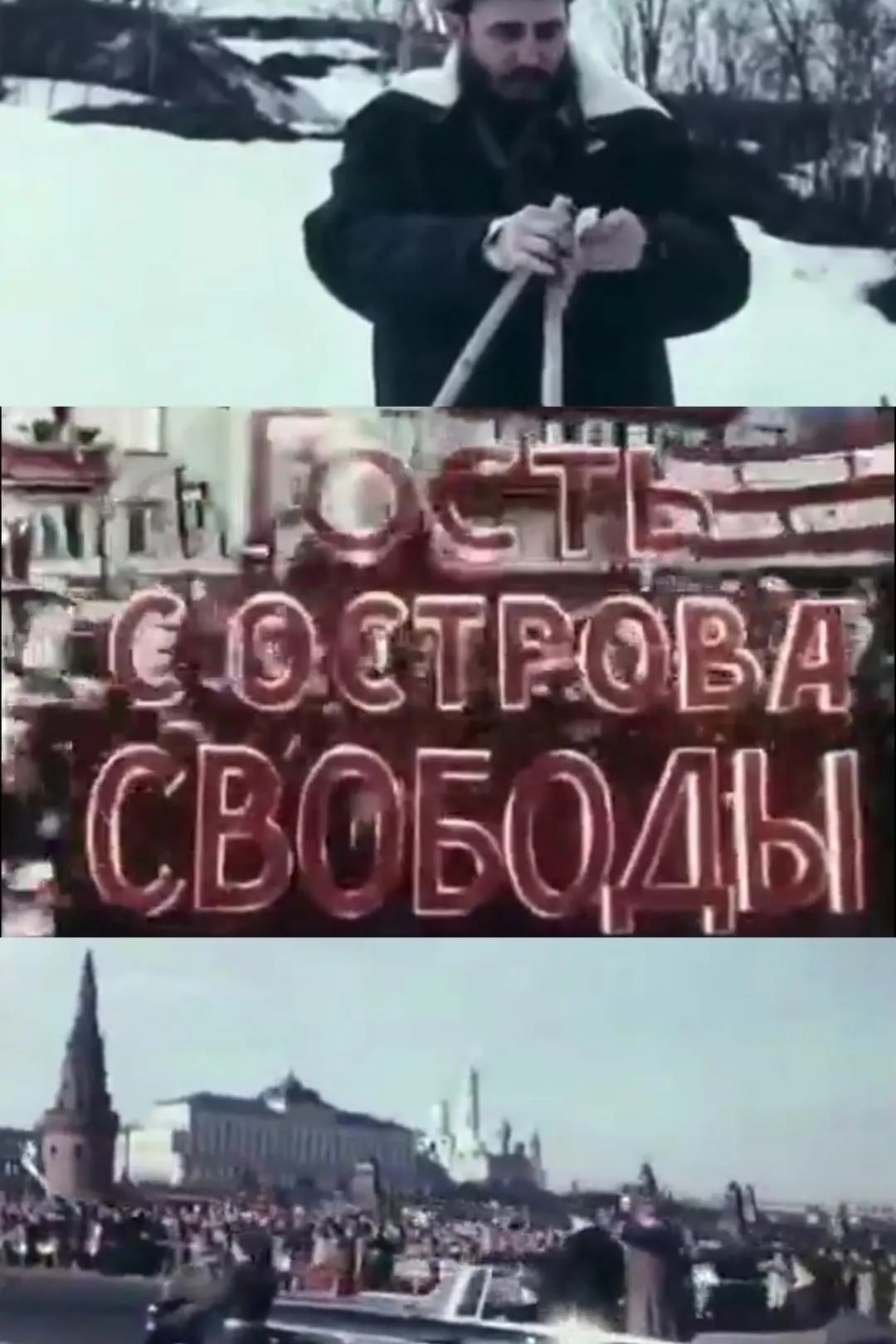
Guest from the Island of Freedom (1963)
Overview
A documentary about Fidel Castro's visit to the USSR from April 28 to June 3, 1963 and how the Cuban leader traveled throughout the Soviet Union for 40 days, from Severodvinsk to Khiva in Uzbekistan.
Production Companies
Additional Info
| Budget | $0.00 |
|---|---|
| Revenue | $0.00 |
| Original Language | ru |
| Popularity | 0.596 |
Directed By
Roman Karmen
TOP CAST
Similar Movies
Ascension
Definitively proving that all the "B" Science Fiction of the 1950s and 1960s do not hold a candle to the 'real thing,' Pavel Medvedev's surreal 45 minute documentary Ascension is certainly one to look for. Composed entirely out of archival footage, much of it from the Soviet science and space archives, delicately scored and building to an undeniable mood of surreal (perhaps even ominous) energy, it charts (and re-purposed) the progress of man into to the unknown area of space exploration with a flair for creating art out film that was shot by scientists and engineers as a mundane record.
The Russian Cracker
Russia is grappling with a critical issue: they have become the country with the most at large serial killers in the world particularly concentrated in Rostov, the same city that witnessed Andrei Chikatilo's infamous killing spree. In response, law enforcement has turned to Dr. Alexander Bukhanovsky, a prominent psychiatrist and criminal profiler, who is implementing radical measures to understand the root causes of this phenomenon and develop effective solutions. Within Dr. Bukhanovsky's clinic, we encounter three of his young patients: Edward and Igor, whose families express deep concerns about their disturbing fantasies, and 'Mischa', who has perpetrated acts of torture and sexual assault. Dr. Bukhanovsky's approach is groundbreaking, offering treatment to potential serial offenders. However, critics argue that by keeping individuals like 'Mischa' anonymous, he may inadvertently shield them from public awareness and accountability, prompting debate over the ethics of his methods.
The Soviet Union's Last Stand
Documentary telling the inside story of Communist hardliners' failed attempts to seize power from Soviet president Mikhail Gorbachev, which resulted in the rapid collapse of the Soviet Union.
Barbarossa: Hitler Turns East
Hitler's invasion of Russia was one of the landmark events of World War II. This documentary reveals the lead-up to the offensive, its impact on the war and the brinksmanship that resulted from the battle for Moscow. Rare footage from both German and Russian archives and detailed maps illustrate the conflict, while award-winning historian and author John Erickson provides insight into the pivotal maneuvers on the eastern front.
Revolution: New Art for a New World
Drawing on the collections of major Russian institutions, contributions from contemporary artists, curators and performers and personal testimony from the descendants of those involved, the film brings the artists of the Russian Avant-Garde to life. It tells the stories of artists like Chagall, Kandinsky and Malevich - pioneers who flourished in response to the challenge of building a new art for a new world, only to be broken by implacable authority after 15 short years and silenced by Stalin's Socialist Realism.
Disgraced Monuments
Filmmakers Laura Mulvey and Mark Lewis use rare archival footage and interviews with artists, art historians, and museum directors to examine the fate of Soviet-era monuments during successive political regimes, from the Russian Revolution through the collapse of communism. Mulvey and Lewis highlight both the social relevance of these relics and the cyclical nature of history. Broadcast on Channel Four as part of the 'Global Image' series (1992-1994).
People of Russia
This FitzPatrick Miniature visits the Union of Soviet Socialist Republics (USSR), the largest geographically unbroken political unit in the world, covering one-sixth of the world's land mass.
X-Ray Audio: The Documentary
Cold War Leningrad: In a culture where the recording industry was ruthlessly controlled by the state, music lovers discovered an extraordinary alternative means of reproduction: they repurposed used x-ray film as the base for records of forbidden songs. Giving blood every week to earn enough money to buy a recording lathe, one bootlegger Rudy Fuchs cuts banned music onto such discarded x-rays to be sold on street corners by shady dealers. It was ultimate act of punk resistance, a two-fingered salute to the repressive regime that gave a generation of young Soviets access to forbidden Western and Russian music, an act for which Rudy and his fellow bootleggers would pay a heavy price.
In Memory of Sergo Ordzhonikidze
The film is about the life and work of Grigory Ordzhonikidze Konstantinoviche, an important personality in both the Communist Party and the Soviet state. The film includes speeches by his bereaved friends who attended his funeral. In 1937, after the unexpected death of Sergo Ordzhonikidze, Vertov received an urgent order from the government to produce a film about the life of Ordzhonikidze. He was ordered to work together with Yakov Bliohom and the director of the film "Battleship Potemkin" distributed by Goskino (Soviet State Committee for Cinematography).
Island Ablazed
Documentary recounting the story of the Cuban Revolution and its impact on the young people of Cuba.
Temporarily Exiled
A community of Armenians, refugees from the Soviet Union during the Baku pogroms, live in a deep American province. Baku life, Armenian blood, Soviet mentality, and American emigration mix in incredible tragicomic proportion.
Astrakan 79
1979. Flicking through pictures from a Soviet magazine, 15-year-old Martim dreams of building a new society. His radical communist parents send him to study at Astrakan for one year. In her new film, Catarina Mourão captures with tremendous precision the moment a middle-aged man passes his story on to his son, thus shedding the taboo of his ineffable experience.
Cuba in Africa
The dramatic untold story of 420,000 Cubans– soldiers and teachers, doctors and nurses– who gave everything to end colonial rule and apartheid in Southern Africa.
The Gulag Archipelago: The Book That Changed Russian History
The story of Russian writer and Soviet dissident Aleksandr Solzhenitsyn (1918-2008) and his masterpiece, The Gulag Archipelago, published in Paris in 1973, which forever shook the very foundations of communist ideology.
The Hitler–Stalin Pact
How could Hitler and Stalin, sworn ideological enemies, come to a secret pact in 1939? The captivating and detailed story of the diplomatic fiasco that led to the signing of the Nazi-Soviet pact and its devastating consequences.
The KGB Connections: An Investigation into Soviet Operations in North America
Documentary - This 1982 film explains the KGB infiltration of America. Who they are, what they are doing, and how well they have infiltrated North America. - Harold Brown, Nikita Khrushchev, V.I. Lenin
Nobody
Half blind and half deaf, ostraziced Cuban writer Rafael Alcides tries to finish his unpublished novels to discover that after several decades, the home made ink from the typewriter he used to write them has faded. The Cuban revolution as a love story and eventual deception is seen through the eyes of a man who is living an inner exile.
Comandante
Oliver Stone spends three days filming with Fidel Castro in Cuba, discussing an array of subjects with the president such as his rise to power, fellow revolutionary Che Guevara, the Cuban Missile crisis, and the present state of the country.

